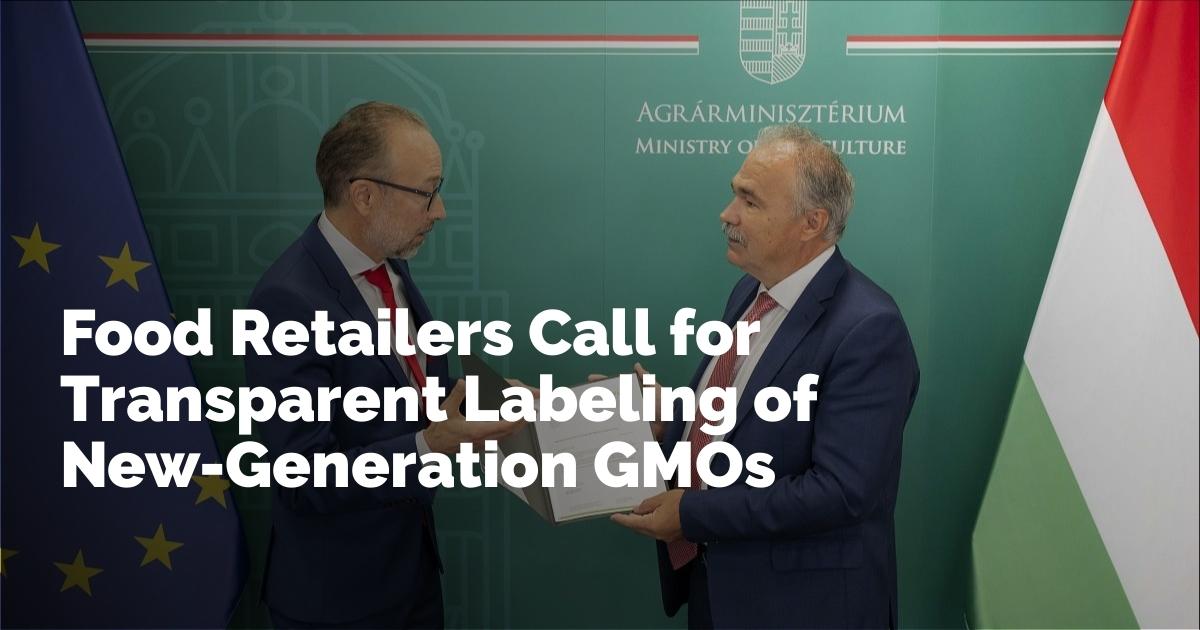Food Retailers Demand Transparent Labeling for New-Generation GM Crops
In recent years, the advent of new-generation genetically modified (GM) crops, often dubbed 'GMO-lite', has stirred significant debate within the agricultural and retail sectors. Without stringent labeling requirements, these innovative crops could threaten consumer choice and the organic food industry, according to numerous industry stakeholders. This article explores the recent developments in the European Union regarding these crops and the calls for labeling transparency that have arisen as a result.
The Push for Labeling in Hungary
In a bold move, Hungary’s agriculture minister, István Nagy, recently received a petition from over 370 food producers and retail companies advocating for strict labeling of these new GM crops. This initiative underscores Hungary's firm stance amid ongoing EU discussions over the potential deregulation of these biotechnological advancements. The proposal to treat genome-edited crops as equivalent to conventionally bred ones has polarized EU member states, largely due to the labeling implications.
Just days before a significant EU Council summit of agriculture ministers in Budapest, major players including Spar Austria and REWE, Germany's second-largest supermarket chain, united in requesting mandatory labeling. They seek alignment with the European Parliament's stance, demanding that all products containing these new genomic technique (NGT) plants be distinctly labeled.
Consumer Choice and Transparency
Götz E. Rehn, founder of the German wholefoods chain Alnatura, emphasized the necessity for consumers to make informed choices regarding their food. He stated that consumers need "freedom of choice through transparency," urging for comprehensive and transparent agricultural practices. This perspective highlights the importance of a clear declaration on all food products containing NGTs, reinforcing consumer autonomy.
Heinz Kaiser, from the dairy company Schwarzwaldmilch, echoed these sentiments by pointing out the existential threat posed to the organic sector. Without proper labeling, consumers might struggle to distinguish between organic and GM products, potentially undermining the organic food market.
Concerns Over Gene-Edited Crops
Critics like Fréderic Faure, vice-president of Biocoop, argue that these modern gene-edited crops carry several drawbacks akin to conventional GMOs. These concerns include issues such as patentability, increased dependency of farmers on the seed and pesticide industries, the risk of outcrossing, and consequent negative impacts on biodiversity. Such concerns resonate with those of several European governments, which have shown apprehension toward deregulation initiatives within the EU.
Divergent Views Among EU Members
The EU Council recently published responses from 15 member states regarding Hungary's awakening of the NGT debate. A faction of these countries, including Spain, Czechia, and Denmark, approved of the prior Belgian-presidency's draft text, which did not necessitate NGT food product labeling. They viewed this compromise as a fair resolution, aiming to avoid rekindling past debates.
Conversely, Austria, Greece, and like-minded nations opposed the Belgian framework, stressing the need for comprehensive labeling from production to consumption. Within this landscape of polarized opinions, Hungary, given its constitutional ban on GM crop cultivation, remains a staunch advocate for mandatory NGT product labeling.
The Broader Implications
Hungary's stance is set to be spotlighted during its participation in an upcoming non-GMO summit in Frankfurt. Sponsored partly by the German Association Food without Genetic Engineering (VLOG), this summit aims to further the discourse on non-GM certifications and labeling initiatives.
On a broader scale, the decisions made by the EU regarding the regulation and labeling of NGT crops could set significant precedents for the industry. How Europe navigates these innovations may influence global standards, impacting everything from consumer rights to agricultural practices.
This ongoing debate encapsulates a critical intersection of scientific advancement, consumer rights, and agricultural policy. As the EU edges toward a resolution, the implications of this decision-making process could ripple far beyond its borders, shaping the global narrative on food transparency and consumer choice. The unfolding dialogue in Hungary and across Europe provides a compelling glimpse into the future of genetically modified agriculture and its regulation on a continental scale.
출처 : Original Source

